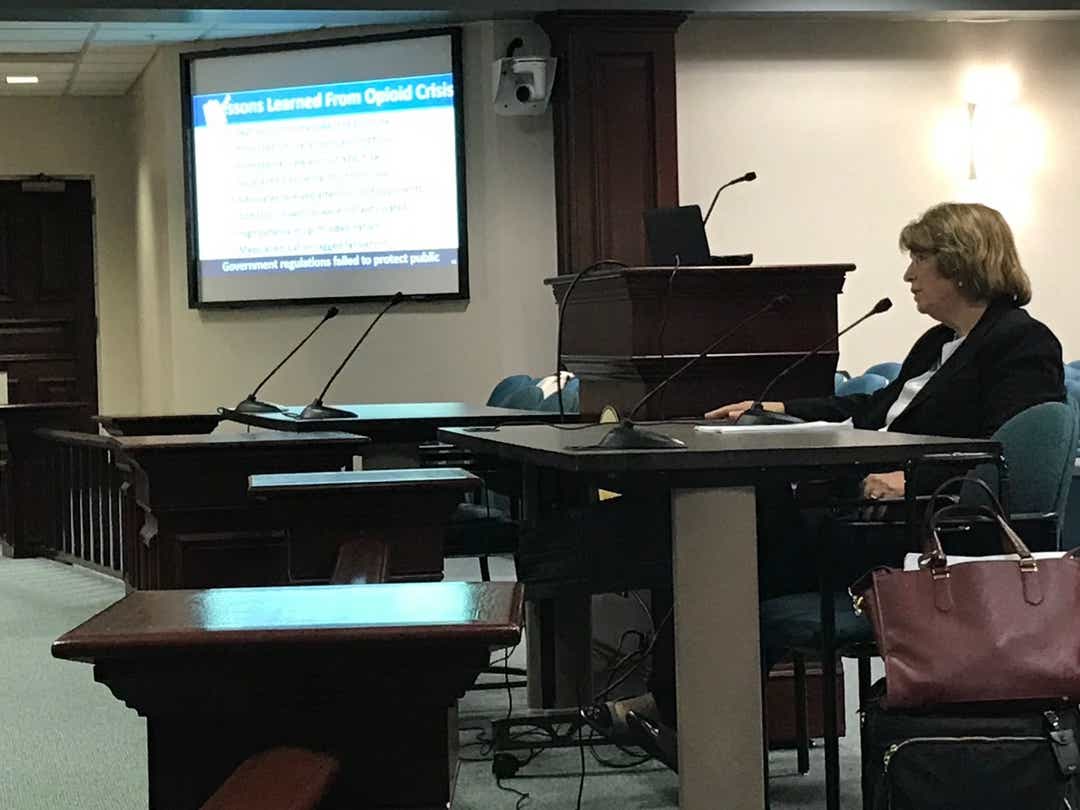“Marijuana is not benign. It is not safe. It is addictive,” said Bertha Madras, a Harvard professor and member of the Commission on Combating Drug Addiction and the Opioid Crisis.
People are misinformed about the potential dangers marijuana poses, such as its potential to increase early-age onset of schizophrenia and psychosis, said Madras, a neurobiologist famed for her work on psychiatric disorders.
Madras said today’s marijuana, with potency levels having increased as much as nine-fold in the past 50 years, is not the same kind of pot people’s granddads smoked in the 1960s.
"It is the most self-delusional drug of all,” she said quoting a colleague. “People are not aware of what is happening to them as they use heavily, as they use more and more, as it erodes a sense of well-being.”
While vast sums of money have been spent to persuade people marijuana is a safe medicine, there is no scientific research to support the claim, she told lawmakers.
Supporters for two of the initiatives — Regulate Florida and Make it Legal Florida — claim to have collected enough signatures to trigger a Supreme Court review of their ballot language.
Regulate Florida would allow residents to grow their own and possess up to an ounce of the harvested plant. Make it Legal would allow adults 21 and older to purchase cannabis for any reason from licensed medical marijuana treatment centers.
Neither group addresses the potential dangers Madras outlines in their efforts to gather petition signatures. Regulate Florida quotes Bill Murray on its website that it is "quite ironic that the most dangerous thing about marijuana is getting caught with it."
Make it Legal takes Madras' line that policymakers must make a cost-benefit analysis about looser marijuana regulations and runs with it, arguing that recreational marijuana would boost the economy, combat an opioid crisis and free law enforcement to pursue violent criminals.
Advocates need to collect 766,200 signatures by February to secure a ballot spot. Then 60 percent of voters must approve the measure for it to pass and become law.
Voters will want to know where he and other House members stand on the proposed constitutional amendments, Rodrigues said, so he invited Madras to brief them on the latest facts about pot.
“I think what she has presented should bring pause to anyone who has heard those facts,” said Rodrigues, who is opposed to recreational marijuana.

Rodrigues said Madras’ presentation is the first of what he plans will be a series of discussions about marijuana regulations.
“Each of us are going to be asked by our constituents where are we on these amendments,” he said.
“It is important we are equipped with facts that we can share with our constituents on the position that we are taking and why we are taking that position.”

No comments:
Post a Comment